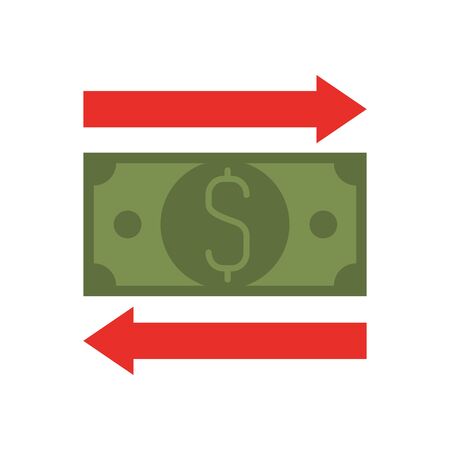Introduction: The American Dream of Homeownership
For generations, owning a home has been seen as a core part of the American Dream. From white picket fences in the suburbs to city condos with skyline views, homeownership represents stability, independence, and personal success for many Americans. But in todays fast-changing world, the decision between renting and buying is not always clear-cut. Rising home prices, shifting job markets, and changing lifestyles have made this choice more relevant than ever.
In the United States, homeownership is deeply tied to ideas of prosperity and belonging. Many people grow up hearing that buying a house is a key milestone—almost a rite of passage into adulthood and financial security. However, more Americans are now questioning whether owning a home truly fits their needs or if renting might be a smarter move. Factors like student debt, flexible work arrangements, and economic uncertainty all play a role in this ongoing debate.
Why Does the Rent vs. Buy Debate Matter?
The decision to rent or buy can have a huge impact on your finances, lifestyle, and long-term plans. Renting offers flexibility and fewer responsibilities but may mean missing out on building equity. Buying can provide stability and potential wealth growth but also comes with big commitments and risks. Because these choices affect everything from monthly budgets to retirement goals, its important for every American to understand what’s at stake.
Cultural Significance of Homeownership
| Aspect | Why It Matters in U.S. Culture |
|---|---|
| Stability | Owning a home is often seen as settling down and establishing roots in a community. |
| Investment | Homeownership is viewed as a way to build wealth over time through property value appreciation. |
| Pride & Independence | Many see owning a home as an achievement and a source of pride—something they can call their own. |
| Flexibility (Renting) | Renting appeals to those who value mobility for career or lifestyle reasons. |
| Freedom from Maintenance (Renting) | Renters are free from major repair costs and property upkeep, which can be attractive for some people. |
Looking Ahead
The rent versus buy conversation isn’t just about numbers; it’s also about what fits your personal dreams and circumstances. By exploring both sides of this debate, you’ll be better equipped to make the best choice for your future—whether that means planting roots or keeping your options open.
2. Financial Pros and Cons of Renting
Financial Flexibility
One of the biggest advantages of renting a home in America is financial flexibility. Renters can move more easily for job opportunities or personal reasons without worrying about selling a property. This flexibility is especially valuable for young professionals, students, or anyone who isn’t ready to settle down long-term.
Lower Upfront Costs
Renting typically requires less money upfront compared to buying a home. While homeowners need a down payment, closing costs, and sometimes various fees, renters usually just pay the first month’s rent, a security deposit, and possibly an application fee. Here’s a quick look at the typical upfront costs:
| Renting | Buying | |
|---|---|---|
| Security Deposit / Down Payment | 1-2 months’ rent | 5%-20% of home price |
| Application/Other Fees | $25-$100 (average) | $2,000-$6,000 (closing costs) |
| Total Upfront Cost Estimate | $1,500-$4,000+ | $15,000-$60,000+ |
Limited Responsibilities and Predictable Expenses
When you rent, the landlord usually handles repairs and maintenance. This means less hassle and fewer unexpected bills for things like plumbing problems or roof leaks. Most renters just pay their rent and utilities each month, making it easier to budget.
Common Drawbacks of Renting
Lack of Equity Building
A major downside to renting is that your monthly payments don’t build equity. Unlike homeowners who gradually own more of their house over time, renters don’t gain any ownership stake—your rent goes straight to the landlord.
Potential Rent Increases
Another challenge is the possibility of rent increases when your lease ends. Landlords can raise rents based on market rates or other factors, making it harder to predict your long-term housing costs.
Less Control Over Living Space
As a renter, you might face restrictions on making changes to your home (like painting walls or remodeling), and you’re subject to rules set by the landlord or property management company.
![]()
3. Financial Pros and Cons of Buying
Building Equity: A Major Advantage
One of the main financial benefits of buying a home is building equity. Every mortgage payment you make increases your ownership stake in the property. Over time, as your home’s value appreciates and your loan balance decreases, you gain more equity, which can be a valuable financial asset.
Tax Advantages for Homeowners
Homeownership in the U.S. comes with some attractive tax perks. You may be able to deduct mortgage interest and property taxes from your federal income taxes, which can lower your annual tax bill. However, these deductions depend on current tax laws and your individual situation.
Common Tax Benefits Table
| Benefit | Description |
|---|---|
| Mortgage Interest Deduction | Deduct interest paid on your mortgage (up to certain limits) |
| Property Tax Deduction | Deduct state/local property taxes paid (up to $10,000 cap) |
| Potential Capital Gains Exclusion | No tax on up to $250,000 ($500,000 for married couples) profit if you sell your primary home after living there 2+ years |
The Hidden Costs: Maintenance and Property Taxes
Unlike renting, owning a home means you’re responsible for all upkeep and repairs—from leaky faucets to roof replacements. These costs can add up quickly and are often unpredictable. In addition, property taxes vary by location but can be a significant yearly expense that homeowners must budget for.
Sample Annual Homeownership Costs Table
| Expense Type | Estimated Cost (Annual) |
|---|---|
| Maintenance & Repairs | $2,000–$5,000+ |
| Property Taxes | $1,000–$10,000+ |
| Homeowners Insurance | $800–$2,500+ |
Market Volatility: The Ups and Downs of Home Values
The real estate market can fluctuate due to economic conditions, interest rates, and local demand. While many Americans have seen their homes appreciate over time, there’s always a risk that property values could decrease—especially in times of recession or regional downturns. This uncertainty means your home’s value is never guaranteed to rise.
4. Lifestyle Considerations and Flexibility
When deciding whether to rent or buy a home in the U.S., lifestyle factors play a huge role. Its not just about the money—your mobility, family situation, and long-term goals all matter. Lets break down how these elements can tip the scales one way or the other.
Mobility: How Often Do You Move?
If your job requires frequent relocation, or if you’re not sure where you want to settle down yet, renting often makes more sense. Renting gives you the freedom to pack up and go with minimal hassle—no need to worry about selling a house or dealing with the real estate market’s ups and downs. On the other hand, buying ties you to one place, which is great if you’re ready to put down roots.
| Renting | Buying | |
|---|---|---|
| Flexibility to Move | High – Easy lease termination | Low – Must sell property first |
| Job Relocation | Easy transition | Can be complicated and costly |
Family Needs: Growing or Changing?
Your current family situation matters too. If youre single or have a small family and expect things to change soon—like getting married or having kids—renting provides flexibility to upsize or downsize as needed. Homeownership might be better for those with stable family needs who want a consistent environment for children or pets.
Common Scenarios:
- Young Professionals: May prefer renting due to uncertain future plans.
- Growing Families: Might lean towards buying for stability and space.
- Empty Nesters: Could choose renting to downsize and simplify life.
Long-Term Plans: Where Do You See Yourself?
If you plan on staying in one area for at least five years, buying can make financial sense over time due to building equity and potential tax benefits. However, if your future is up in the air—maybe you’re considering moving states or changing careers—renting keeps your options open without tying you down financially.
| Short-Term (1-3 years) | Mid/Long-Term (5+ years) | |
|---|---|---|
| Renting | Ideal for short stays or uncertain plans | Might not build wealth over time |
| Buying | Not recommended due to high upfront costs and selling fees | Better value through equity and appreciation |
The Bottom Line on Lifestyle Choices
Your personal situation—how often you move, your family needs, and your future plans—should be at the heart of your decision to rent or buy. There’s no universal right answer; it all depends on what fits best with your current stage of life and what you hope for in the years ahead.
5. Making the Right Choice for Your Situation
What to Consider Before Deciding
Choosing between renting and buying a home is a big decision, and what works for one person may not work for another. Here are some key questions every American should ask before making the leap:
- How long do I plan to stay in this area? If you expect to move within a few years, renting may make more sense.
- What’s my current financial situation? Can you afford a down payment, closing costs, and ongoing maintenance?
- How stable is my job or income? Homeownership usually requires steady income for mortgage payments and upkeep.
- Do I want flexibility or stability? Renting offers more flexibility, while owning gives you stability and potential equity growth.
- What’s the local housing market like? Prices, rents, and trends can vary greatly from state to state and even city to city.
Regional Housing Market Trends in the U.S.
The U.S. housing market isn’t one-size-fits-all. Here’s a quick look at some trends that might influence your decision:
| Region | Home Price Trends | Rental Market Trends | Key Considerations |
|---|---|---|---|
| Northeast (e.g., New York, Boston) | High prices, slower growth | Strong rental demand, high rents | Buying often requires large down payments; renting can be costly but flexible |
| Southeast (e.g., Atlanta, Charlotte) | Moderate prices, fast growth | Rising rents but still affordable options | Younger buyers entering the market; rent vs. buy gap narrowing |
| Midwest (e.g., Chicago, Detroit) | Lower prices, steady growth | Larger supply of rentals at reasonable rates | Easier entry for first-time buyers; good value markets |
| West Coast (e.g., Los Angeles, Seattle) | Very high prices, competitive market | Tight rental markets with high prices | Difficult to buy without significant savings; strong rental competition |
| Southwest (e.g., Phoenix, Dallas) | Prices climbing quickly in popular areas | Affordable rentals exist but filling up fast | Booming job markets attract both buyers and renters; act quickly |
Practical Tips for Making Your Decision
- Create a budget: Compare monthly costs of renting vs. owning in your target area.
- Check your credit score: Good credit opens better mortgage options if you’re considering buying.
- Factor in extra costs: Homeowners pay property taxes, insurance, repairs—renters typically don’t.
- Talk to local real estate agents: They know neighborhood trends and can share insights tailored to your needs.
- Think about your lifestyle: If you travel often or want hassle-free living, renting could be best. If you crave customization and long-term investment, buying may win out.
Your Next Steps: Questions to Ask Yourself
- If I lost my job tomorrow, how many months could I cover rent or a mortgage?
- If the housing market drops in my area, am I prepared for possible changes in home value?
- Do I want the responsibility of maintaining a home or would I prefer calling a landlord?
No One-Size-Fits-All Answer—Choose What Fits You Best!
The right choice comes down to your priorities, finances, and where you see yourself in the next few years. Take your time to weigh these factors so you can feel confident in your decision—whether it’s renting or buying your next home.


